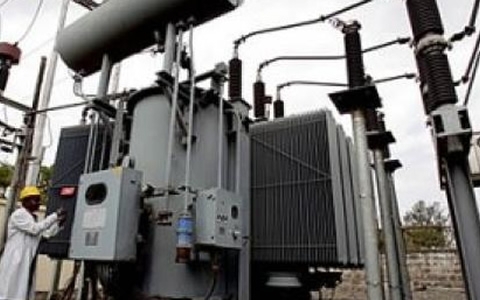
The Energy Commission is to embark on a stakeholder consultation on a new comprehensive energy strategy to be unveiled next year by the Ministry of Energy.
The strategy will improve on the current Strategic National Energy Plan (SNEP) 2006 – 2020 which examined the available energy resources of the country holistically in order to tap them economically and timely to ensure a secured and adequate supply for sustainable economic growth.
The main objectives of SNEP are to establish an effective national infrastructure for energy planning; and create a consensus reference framework for the development of the energy sector.
Under the plan, the total energy expenditure is expected to rise from about US$ 4.3 – 4.6 billion, 13 – 14% of gross domestic product (GDP) in 2015, to US$5.2 – 5.6 billion, 8 – 9% of GDP in 2020.
Dr. Joseph Essandoh-Yeddu, Head of Strategic Planning and Policy Division at the Commission, explained that the Commission is revising the SNEP to make it take account of current innovative trends and technology in the energy industry.
“The Commission had already completed consultations with stakeholders in the demand side of energy while those for the supply side will be held in November.”
He said this at a roundtable discussion in Accra on the expectations and the way forward for the country’s energy sector. The discussion was organised by the Institute of Green Growth Solutions (IGGS), a Ghanaian non-governmental policy think tank, in partnership with Konrad Adenauer Stiftung, a German civil society organisation.
Participants at the discussion, which had Dr. Kwabena Donkor, Chairperson of the Parliamentary Committee on Mines and Energy, Dr. Albert H. Ahenkorah, Executive Director of the Energy Commission, and Nana Osei Bonsu, President of the Private Enterprises Federation, as main speakers, examined critical issues in the energy sector.
Dr. Donkor stressed that the government’s 5,000 megawatts (MW) target in 2016 was not adequate, and asked the government to aim at attaining 10,000 MW installed capacity in the next 10 years.
“What I call for is affordable supply, affordable in the sense of re-aligning cost to Ghanaian industry. It is better to have a tariff regime that reflects the reality on the ground,” he said.
He indicated that the country has a total of five trillion cubic feet of gas, which is not enough for producing electricity and for other uses.
“We must not deceive ourselves that we have enough gas … We are looking at solar in the wrong direction,” he said, applauding the decision by the Commission to suspend licences for grid-connected solar.
He further observed: “We are not wind-rich. Light crude oil is a no, no. Coal is cheaper than non-associated gas. All our gas is in deep waters and cost recovery is very high.”
Dr. Ahenkorah supported the use of coal to produce power, but emphasised that the infrastructure for the coal such as sea-ports must first be developed and expanded.
Nana Bonsu said the private sector should be supported to lead the development of the energy sector.
Dr. Eric Twum, the Chief Executive Officer of IGGS, contended that the country’s leaders have failed woefully to solve the energy problem which they grappled with for over two decades.
“The story of Ghana’s energy sector hasn’t been an inspiring one, to say the least, but it also reminds us that we have a duty to ourselves,” Dr. Twum stated.




